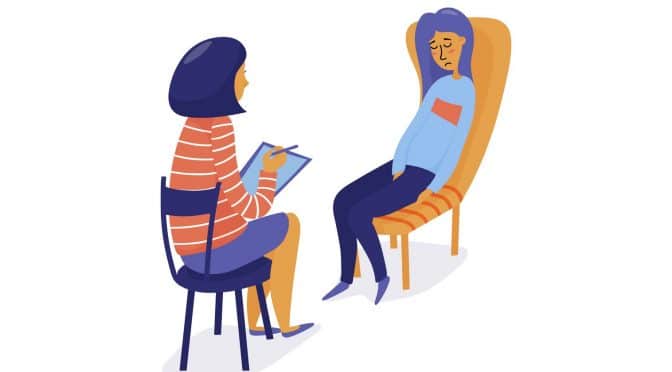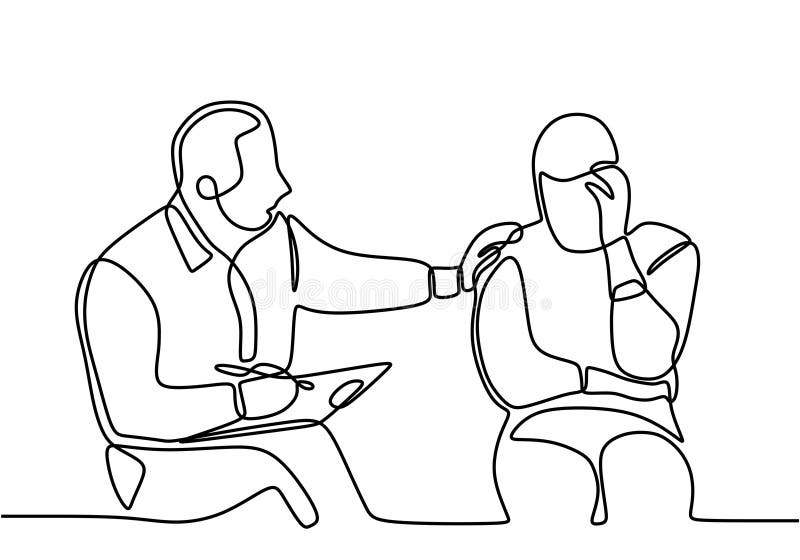Leading Reasons to Consult the Best Psychologist in Delhi for Your Emotional Health
Leading Reasons to Consult the Best Psychologist in Delhi for Your Emotional Health
Blog Article
Psych Treatment: A Comprehensive Overview to Outcomes and strategies

Cognitive-Behavioral Treatment
Cognitive-Behavioral Therapy (CBT) is a commonly made use of psychotherapeutic strategy that focuses on identifying and modifying useless thinking and habits patterns. Established in the 1960s by Aaron T. Beck, CBT combines behavioral and cognitive theories to address numerous psychological health concerns, consisting of depression, anxiety, and stress-related conditions.
Strategies such as cognitive restructuring, direct exposure therapy, and skill-building exercises are typically utilized. Cognitive restructuring involves challenging and altering unfavorable thought patterns, while direct exposure treatment aims to decrease fear and anxiousness via gradual direct exposure to been afraid circumstances or things.
Evidence-based research study sustains the efficiency of CBT for a wide variety of mental conditions - Best Psychologist in Delhi. Its emphasis on skill procurement and self-help strategies encourages clients to proceed development separately after therapy concludes. The flexibility and efficiency of CBT have actually made it a foundation in contemporary psychotherapeutic method
Psychodynamic Techniques
Rooted in the early concepts of Sigmund Freud, psychodynamic techniques concentrate on exploring the subconscious mind and its influence on actions and emotions. These methods intend to uncover surprise ideas and feelings that might be driving maladaptive actions and mental distress. Central to this approach is the principle of inner dispute, frequently coming from unsettled previous experiences, particularly those from childhood years.
Therapists using psychodynamic techniques employ several crucial approaches, including totally free association, where individuals are urged to speak freely to disclose subconscious material, and dream evaluation, which analyzes the hidden web content of desires. Additionally, the exploration of transfer and countertransference characteristics within the healing relationship is vital. These communications can supply understandings right into the patient's interior world and relational patterns.
Psychodynamic treatment is typically longer-term compared to other techniques, providing a deep and thorough understanding of the person's psyche. Research study suggests that it can be specifically reliable for complex mental health and wellness issues, such as individuality conditions and chronic anxiety. By promoting self-awareness and emotional insight, psychodynamic treatment looks for to bring subconscious material to consciousness, enabling people to attain long-term and purposeful adjustment in their lives.
Humanistic Strategies
Structure on the structures laid by psychodynamic methods, humanistic methods use a distinctive point of view concentrated on private prospective and self-actualization. Coming from the mid-20th century, these techniques focus on the integral benefits and development capacity of people, stressing an all natural sight of human experience. Key figures such as Carl Rogers and Abraham Maslow have significantly affected this restorative technique, which includes methods like client-centered treatment and Gestalt treatment.
Client-centered treatment, developed by Rogers, plays a crucial function in humanistic strategies. The therapist's duty is more of a facilitator than an authority, urging clients to harness their internal sources for recovery.
Gestalt treatment, one more vital humanistic method, emphasizes existing moment recognition and the integration of body and mind. By focusing on the "below and now," clients gain higher understanding into their present emotions and habits. Strategies such as role-playing and guided visualization are usually used to help clients gain a deeper understanding of themselves, ultimately causing improved self-awareness and satisfaction.
Integrative Therapies
Integrative treatments stand for a synthesis of numerous restorative strategies tailored to meet the distinct demands of each client. This method recognizes the intricacy of human psychology and the complex nature of mental health issues. By incorporating components from various colleges of psychiatric therapy-- such as cognitive-behavioral therapy (CBT), psychodynamic therapy, and humanistic strategies-- integrative therapies use you can look here an even more flexible and all natural therapy standard.
Specialists of integrative treatment evaluate each customer's details needs, signs and symptoms, and individual background to create a customized treatment plan. This individualized approach improves the capacity for restorative success by attending to the origin of emotional distress and advertising general well-being. Strategies could consist of mindfulness exercises, cognitive restructuring, and emotional processing, each selected to target various facets of the client's issues.
Additionally, integrative therapies highlight the restorative relationship, seeing the client-therapist bond as a critical part of efficient treatment. This connection promotes a helpful environment where customers really feel risk-free to explore and resolve their worries. The versatility of integrative treatments makes them appropriate for a wide array of problems, consisting of anxiousness, clinical depression, trauma, and social problems, thus enhancing their applicability and effectiveness in varied clinical setups.

Determining Therapy Results
Evaluating the performance of psychotherapy is important for both clinicians and customers to make sure that the therapy is yielding the preferred outcomes. To accomplish this, various techniques and tools are used to gauge treatment outcomes systematically. Standard evaluation instruments, such as the Beck Clinical Depression Inventory (BDI) and the Generalized Stress And Anxiety Condition 7 (GAD-7), give quantitative data on symptom extent and modifications with time.
Along with standard tools, qualitative approaches like customer self-reports and medical interviews supply important understandings right into the personal experiences and regarded progress of clients. Consistently set up assessments, typically at the beginning, middle, and end of therapy, assistance in tracking the trajectory of renovation or recognizing locations requiring adjustment.
Result measurement is not restricted to symptom reduction; it likewise includes functional renovations in everyday life, such as much better social relationships, raised job productivity, and enhanced total well-being. Modern improvements in electronic health and wellness have actually introduced mobile apps and online systems that help with real-time tracking and comments, additionally fine-tuning the evaluation procedure.
Inevitably, a detailed technique to gauging therapy outcomes ensures that therapeutic interventions are effective, efficient, and tailored to fulfill the private needs of customers, thus optimizing the total restorative experience.
Final Thought
Psychiatric therapy supplies a complex variety of methods intended at resolving certain mental health and wellness concerns and improving general well-being. Cognitive-Behavioral Therapy and psychodynamic approaches target unconscious impacts and inefficient ideas, specifically. Humanistic strategies concentrate on personal development and read the full info here self-actualization, while integrative therapies integrate multiple techniques for tailored therapy strategies. Evaluating treatment outcomes via qualitative approaches and standardized evaluations guarantees a comprehensive understanding of performance, eventually directing clients towards sustaining mental health and wellness enhancements.
From the organized technique of Cognitive-Behavioral Treatment (CBT) to the deep exploration of the unconscious in psychodynamic therapy, each technique brings unique benefits. Its emphasis on ability purchase and self-help strategies encourages clients to continue progress independently after therapy wraps up (Best Psychologist in Delhi). Trick numbers such as Carl Rogers and Abraham Maslow have significantly influenced this restorative strategy, which encompasses methods like client-centered therapy and Gestalt treatment

Report this page